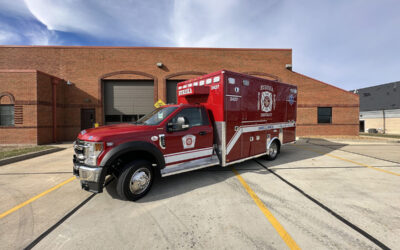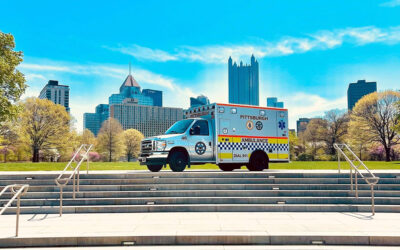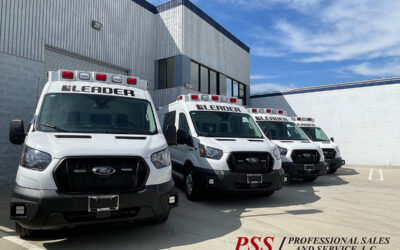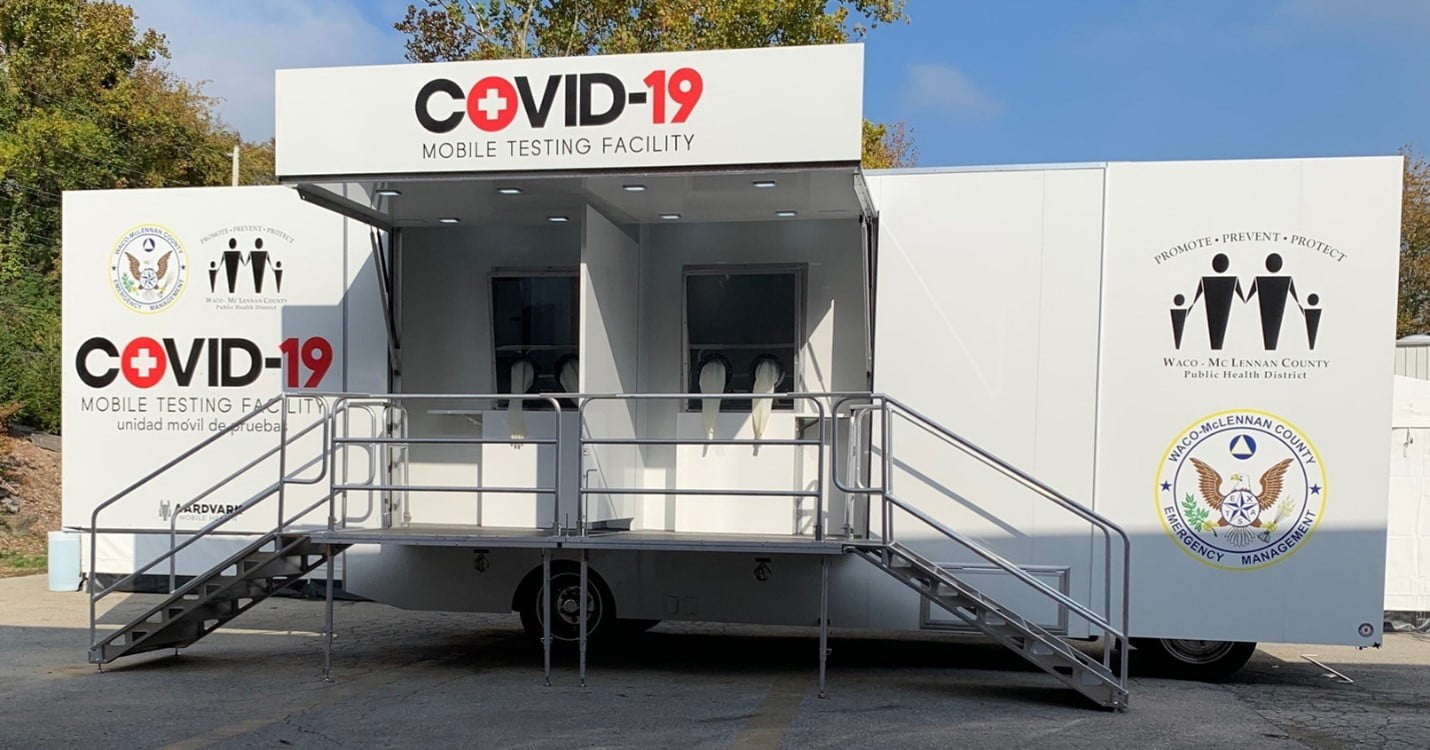
The public health department in Waco-McLennan County, Texas hired Aardvark Mobile Health to provide a mobile health vehicle and infrastructure program that enabled the county to administer up to 900 tests per day. (Photo/Aardvark Mobile Health)
By Larry Borden
Being prepared for unexpected and unfortunate situations is a common challenge for organizations of all kinds – and for emergency management departments, vehicles are often part of the solution.
When a person is trapped in a burning building, firefighters come to their rescue in a fire truck.
When someone is the victim of a crime, they are met by a cop in a police car.
When a patient needs urgent medical attention, a paramedic arrives in an ambulance.
But what happens when a community is faced with a different sort of emergency, such as a natural disaster or an unprecedented health crisis like COVID-19? In these situations, there is another type of vehicle that counties need to have at the ready: a mobile health clinic.
Mobile health vehicles can be used for any number of community health needs – such as testing, screenings, vaccinations and more – or in the aftermath of a disaster for bottled water and food distribution or cell phone charging. With the current pandemic disrupting traditional methods of healthcare delivery and exposing alarming inequities in access to testing, vaccinations and screenings, emergency managers and county commissioners are being challenged to “meet people where they are” now more than ever. Mobile health clinics can help achieve just that – the ability to bring much-needed services to those living in rural and underserved communities who would not otherwise be able to access care.
When the pandemic surfaced – and with these needs in mind – Aardvark Mobile Health quickly created a patented mobile health vehicle that was custom-built for COVID-19 and has air conditioning and heating, WiFi and a generator for onboard electricity. Unlike tents, kiosks, shipping containers or traditional RVs, Aardvark’s trucks are self-contained, sturdy enough to withstand weather events and certified for positive and negative air pressure. In addition, they can be set up and packed up in under 15 minutes to get tests and vaccines to as many community members as possible.
As an example, when the public health department in Waco-McLennan County, Texas received 40,000 COVID-19 tests from the federal government, they hired Aardvark Mobile Health to provide a mobile health vehicle and infrastructure program that enabled the county to administer up to 900 tests per day in rural areas and at sites like community colleges, assisted living centers and churches.
The demand for this kind of mobile infrastructure to reach underserved and rural communities – which has increased exponentially since the pandemic – makes mobile health units the ultimate solution for responding to high-priority community health needs, like getting at-risk populations vaccinated. In fact, the American Rescue Act signed into law in March 2021 earmarked $7.5 billion for COVID-19 vaccine administration activities, such as improving vaccination centers and expanding mobile vaccination efforts.
With hopes that pandemic-driven needs will subside once vaccinations are more widely available, the long-term versatility of these mobile health units are what make them a worthy investment. Whether it be for providing free physicals at schools in underprivileged communities, free screenings for veterans or immediate relief for disaster-caused needs, mobile health units are a necessary addition to any community’s emergency services fleet.
Vehicles have long been a hallmark of emergency response departments and a widely recognized signal that a scary situation is being handled by an expert. In the same way that a fire truck pulling up to a house fire is a sign of safety or an ambulance whizzing by on the highway means a sick patient is on their way to receiving care, a mobile health unit shows that a community health need is being addressed and assistance is available to those who need it most. The next time there is a pandemic or public health crisis, there will be no excuse for health and emergency departments to be unprepared.

Larry Borden is the founder and CEO of Aardvark Mobile Health, a division of Aardvark Mobile Tours, which is dedicated to serving communities across the United States during the COVID-19 pandemic and for ongoing mobile healthcare needs. For more information, please visit https://aardvarkmobilehealth.com.

